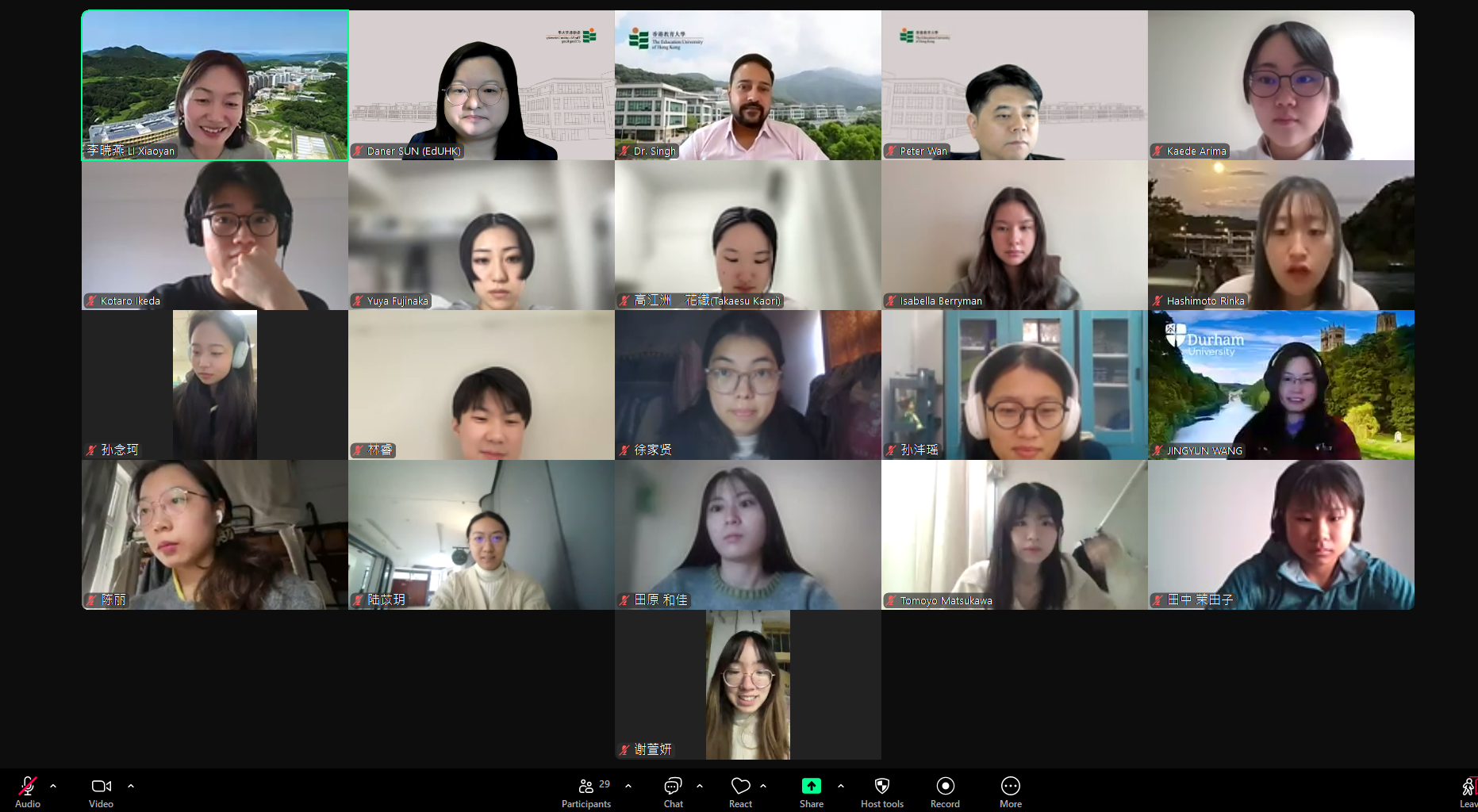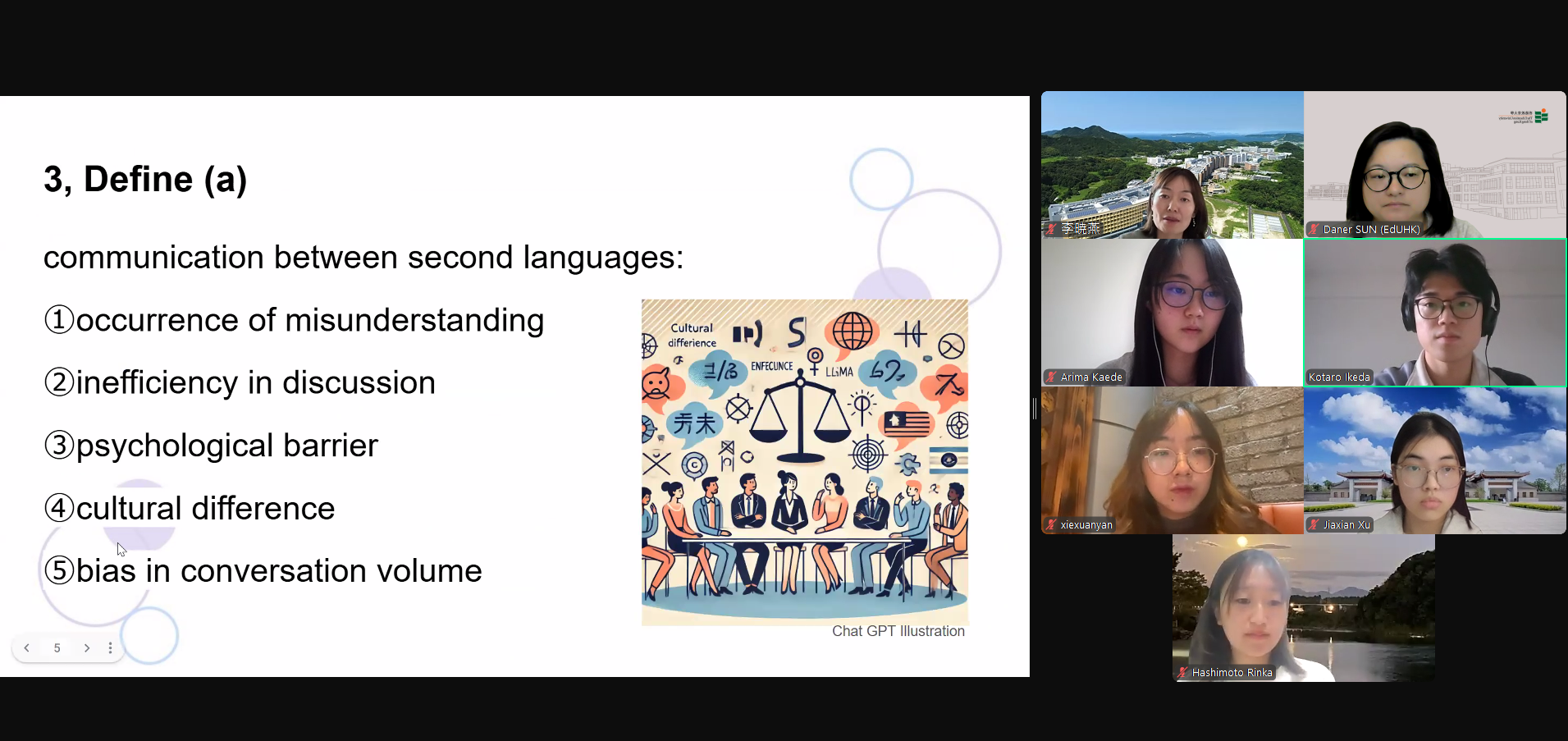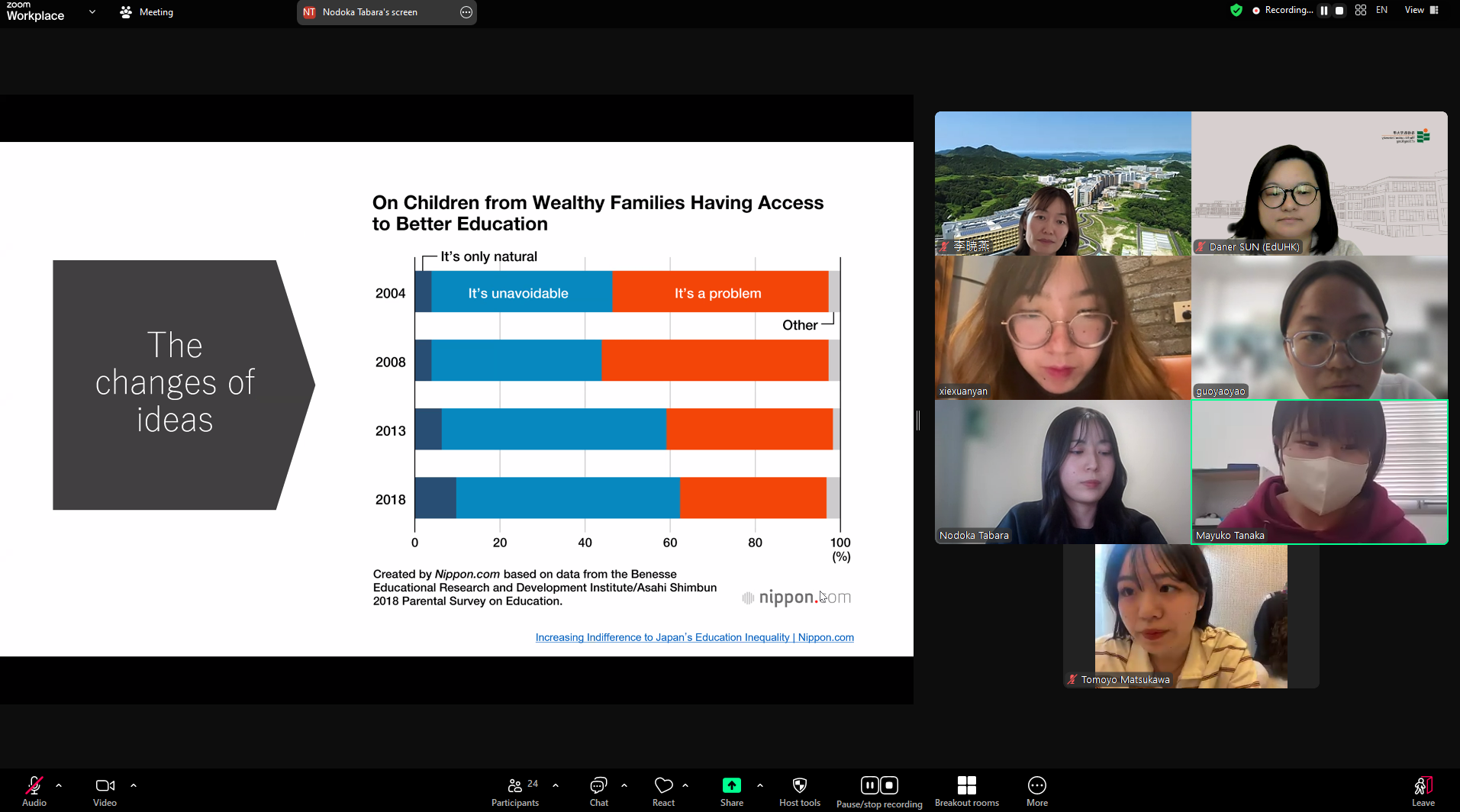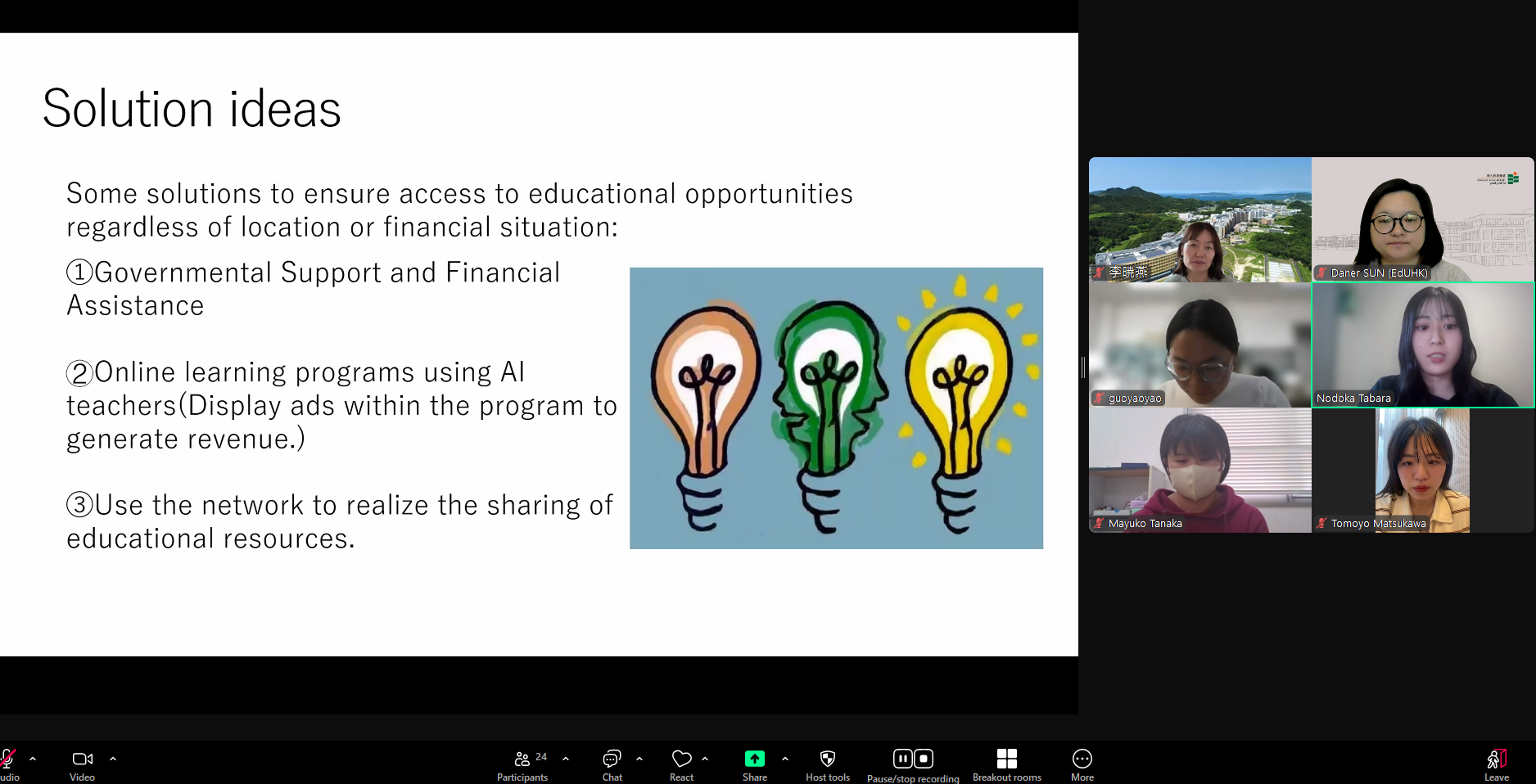Successful International Workshop on Design Thinking, Computer Science, and Intercultural Communication hosted by three universities
The Education University of Hong Kong’s Department of Mathematics and Information Technology successfully hosted the "Integrated Innovation: A Multidisciplinary Exploration of Design Thinking, Computer Science, and Intercultural Communication" workshop from 8:00 am–17:30 pm on December 7 and 14, 2024. This collaborative workshop brought together educators, researchers, and students from The Education University of Hong Kong, Kyushu University, Durham University, Zhejiang Normal University, and Henan University, fostering global partnerships to tackle real-world challenges through innovative solutions.
The program was chaired and moderated by Dr. Li Xiaoyan (Kyushu University) and Dr. Sun Daner (The Education University of Hong Kong), who not only facilitated discussions but also delivered engaging teaching sessions during the workshop. Dr. Li’s sessions focused on intercultural communication and collaboration, while Dr. Sun highlighted the role of technologies in STEM education. Their dual roles as moderators and instructors enriched the program, offering participants expert guidance and practical insights.
The expert teaching team also included Dr. Wang Jingyun (Durham University), Dr. Peter Zhihong Wan, and Dr. Manpreet Singh (The Education University of Hong Kong). Together, they led sessions on AI-based learning systems, quantitative methods, and metaverse applications in STEM education, showcasing cutting-edge educational technologies and their potential to enhance cross-cultural interaction and learning experiences.
The workshop explored the intersection of design thinking, computer science, and intercultural communication, equipping participants with essential 21st-century skills. Through hands-on sessions, attendees applied all stages of design thinking—empathy, definition, ideation, prototyping, and testing—to address complex global issues. Activities strengthened systems thinking, critical evaluation, and interdisciplinary collaboration, enabling participants to develop innovative solutions while engaging with peers from diverse academic and cultural backgrounds. The program concluded with a team-based project proposal presentation to an international audience, where participants received constructive feedback to refine their ideas and maximize their global impact.
The success of this event highlights the importance of international collaboration, multidisciplinary approaches, and the integration of student-centered, technology-driven strategies in advancing educational innovation and preparing participants for a rapidly evolving, interconnected world.





